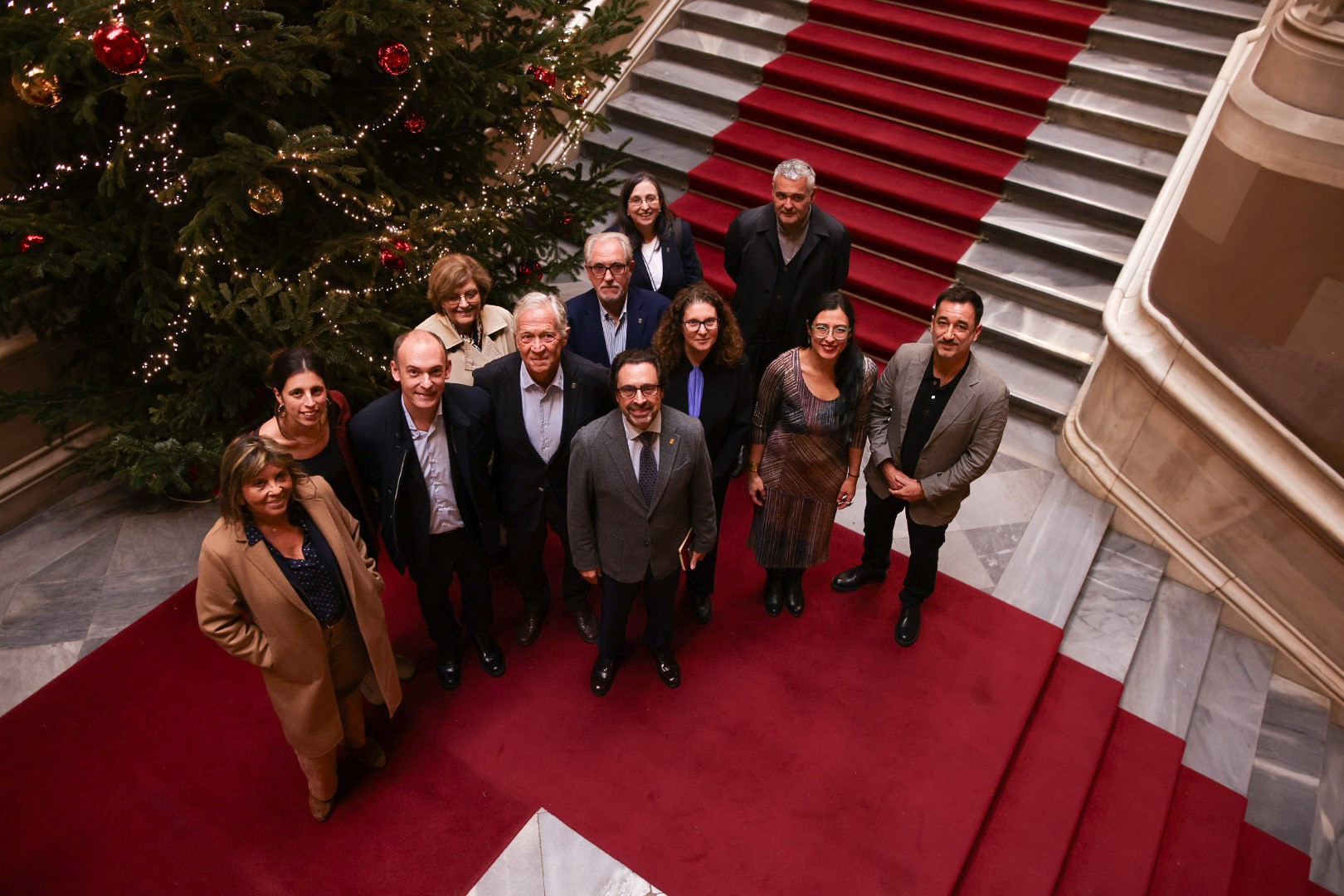
The Bosch i Gimpera Foundation and the Social Council of the UB award quality research and knowledge transfer projects
On Tuesday 3 December in the afternoon, the twentieth edition of the Social Council Awards of the University of Barcelona and the seventeenth of the Awards of the Social Council of the University of Barcelona and the Bosch i Gimpera Foundation took place .
The Great Hall of the Historic Building hosted the presentation of the awards, which distinguish high-quality research developed for young researchers, as well as cases of returning to society knowledge acquired and developed at the University of Barcelona.
Perception of security in Barcelona’s parks
The José Manuel Blecua Prize, which is awarded to the best article published in a recognized journal in the field of humanities and social sciences, was awarded to a research that studies the daily activity in six parks in Barcelona and shows which factors contribute a higher degree or less high perception of security.
The study is part of the doctoral thesis of Félix Pérez Tejera, which has had the direction of Sergi Valera and Maria Teresa Anguera, professors of the Faculty of Psychology of the UB. The research, published in the Journal of Environmental Psychology, led to the creation of a new instrument for observing behavior in public spaces, ÈXOdES (observational examination of public spaces), which is already being applied in other studies.
The Ramon Margalef Award, aimed at the best research published in a recognized journal in the field of experimental sciences and health derived from a doctoral thesis, was given to Elisabet Tintó for research on the disease of malaria, which affects more than two hundred million people. Specifically, research has discovered how the malaria parasite defends itself against adverse conditions in the host, including fever.
The study, published in an article in Nature Microbiology, is part of the doctoral thesis of Elisabet Tintó, researcher at the Global Health Institute of Barcelona, directed by Alfred Cortés.
A pioneering project in the teaching of history
The Antoni Caparrós Award, intended for the best knowledge, technology and innovation transfer project, was awarded to two proposals. The jury has decided to recognize a pioneering educational project with an innovative methodology for teaching history and understanding historical processes.
The project follows the history of the guitar in the 19th century as a tool to explore multiple facets of those times. This approach allows students to delve into history from an interdisciplinary perspective that includes political, social, economic and cultural aspects.
Dr. Isidora Valentina Sáez, a professor at the Faculty of Education of the UB, has led the research, which has been developed in the framework of a collaboration with the Institute of Technology and Higher Studies of Monterrey (Mexico).
Treatment of histamine intolerance
The other proposal deserving of the Antoni Caparrós Award is from Dra. Carmen Vidal Carou, professor of Nutrition and Bromatology at the Faculty of Pharmacy and Food Sciences of the UB and head of the Amines and Bioactive Polyamines of Food research group.
The team, led by Dr. Vidal, has developed an innovative plant-based product for the complementary treatment of histamine intolerance, a disorder that affects about 1% of the population worldwide.
In the award-winning project, UB researchers have developed a new ingredient derived from legume sprouts, specifically freeze-dried pea sprouts, capable of degrading histamine. This product is as effective or more effective than the treatment based on pig kidney protein extract that is currently used. In this way, the available dietary options can be expanded, especially for vegetarians, vegans or people with religious restrictions regarding the consumption of foods derived from pork.
The jury has recorded a specific recognition of the project carried out by Dr. Xavier Font Castell in the data update of the taxonomic modules of the Biodiversity Data Bank of Catalonia. It is a key instrument for environmental research and teaching and a benchmark for making informed decisions in environmental management. It is an active project for more than twenty-five years, which has made it possible to centralize all the information on biodiversity in Catalonia.
Reveal Genomics won the Senén Vilaró Award for the best innovative company developed within the UB. The firm has redefined precision oncology, through the identification of new biomarkers and the development of diagnostic tests that improve the evolution and well-being of cancer patients.
The first product of this company derived (spin-off) from the UB, the Hospital Clínic de Barcelona, the Vall d’Hebron Institute of Oncology and the Institute of Biomedical Research August Pi i Sunyer (IDIBAPS) , was the HER2DX®️ test. This unique diagnostic instrument in the world is aimed at patients with HER2-positive breast cancer, it is designed to improve the quality of life of patients in the short and long term and avoid unnecessary treatments and serious toxicities derived from certain drugs, such as cardiotoxicity.
The test provides patients and doctors with help to make decisions based on the beneficial effect of the treatment and the likelihood of relapse. The purpose of HER2DX®️ is to improve the prognosis of patients and therefore directly impact their survival. In addition, this new tool satisfies an urgent social and economic need, such as overtreatment, and the optimization of resources.

